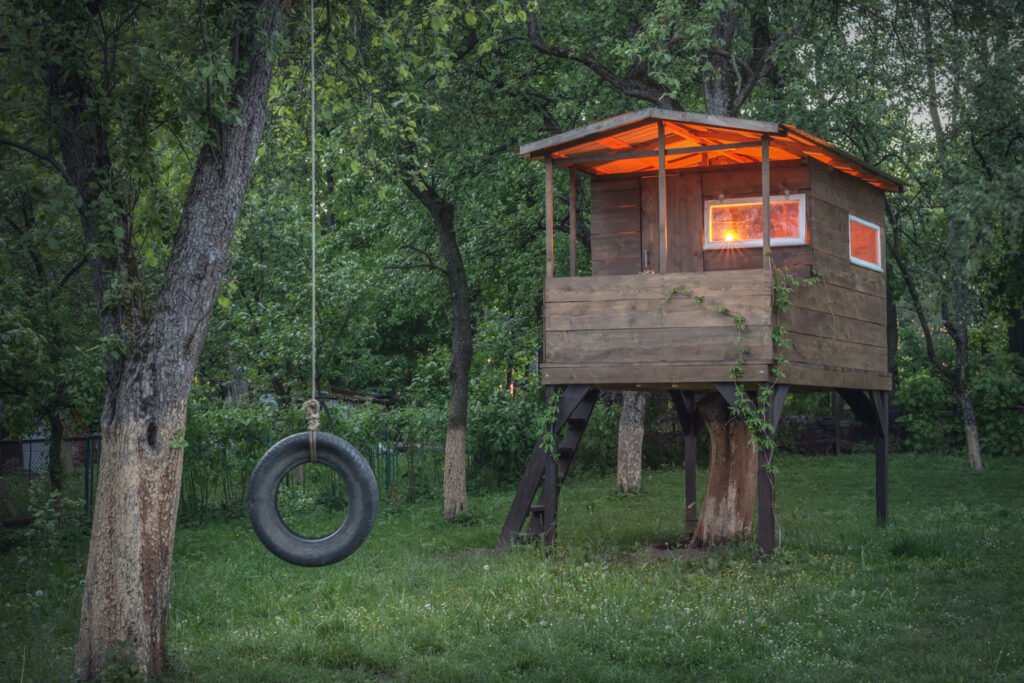There was a time when childhood came with built-in freedoms that today’s kids will never experience—a magical era when parents couldn’t track your every move and summer days stretched endlessly without digital interruption. We lived in the sweet spot between helicopter parenting and complete neglect, where “be home when the streetlights come on” was considered detailed instructions. Those were the days when boredom was a gift, not a problem to be solved with a screen, and when the worst thing that could happen was missing your favorite TV show because you forgot what night it was on.
1. Actually Getting Lost and Finding Your Way
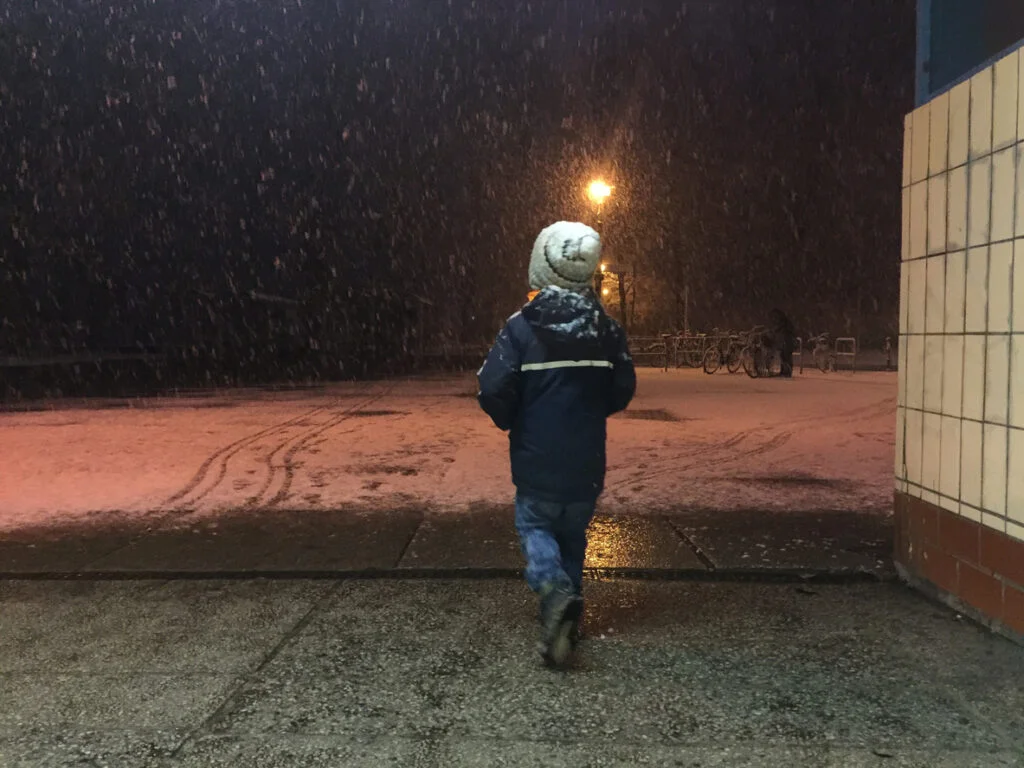
Remember the pure adventure of riding your bike beyond the familiar neighborhood streets and suddenly realizing you had no idea where you were? There was no GPS to guide you home, no parent to call for rescue—just you, your sense of direction, and the thrilling challenge of figuring out how to get back before dark. These mini-adventures taught us navigation skills, problem-solving, and the confidence that we could handle whatever came our way.
Getting lost wasn’t a crisis—it was an opportunity to discover new shortcuts, meet neighborhood kids you’d never seen before, or stumble upon that perfect climbing tree you’d been searching for all summer. The mild panic of being temporarily disoriented quickly gave way to the satisfaction of recognizing a familiar landmark or street sign that pointed you toward home. These experiences built a kind of resilience and self-reliance that no amount of digital mapping can replicate.
2. Disappearing for Entire Days Without Check-ins
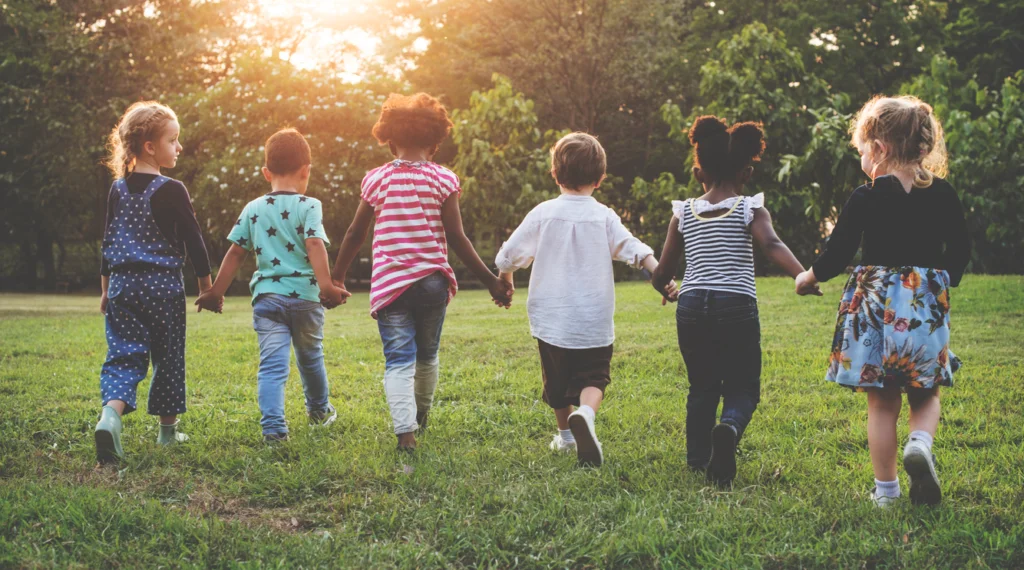
Summer mornings meant freedom—you’d wolf down a bowl of cereal, grab your bike, and vanish into the neighborhood until hunger or darkness drove you home. Parents didn’t expect hourly updates on your whereabouts; they trusted that you’d show up for dinner with grass stains on your clothes and stories to tell. The only rule was to be within shouting distance if someone really needed to find you, which happened maybe twice all summer.
Those long, unstructured days taught us how to entertain ourselves, negotiate with other kids, and handle minor emergencies without adult intervention. We learned to read the sky for approaching storms, to find water fountains when we were thirsty, and to make friends with kids whose names we never actually learned but whose backyards had the best swing sets. The freedom to roam gave us confidence and independence that couldn’t be taught in any classroom or downloaded from any app.
3. Having Real Secrets That Actually Stayed Secret

Before social media turned every moment into potential content, we could have genuine secrets—crush notes passed in class, hidden diary entries, or whispered confessions during sleepovers that were never meant for public consumption. These secrets felt precious because they were truly private, shared only with your most trusted friends who understood the sacred nature of keeping someone’s confidence. The weight of holding someone’s secret made friendships feel deeper and more meaningful.
There was something magical about having parts of your life that were completely your own, untouched by parental oversight or peer judgment from beyond your immediate circle. Whether it was a secret hiding spot, a private hobby, or feelings you weren’t ready to share with the world, these hidden aspects of childhood allowed us to develop our authentic selves without external pressure. The privacy gave us space to grow, experiment, and figure out who we were becoming without an audience of hundreds watching our every move.
4. Experiencing Genuine Boredom (And the Creativity It Sparked)
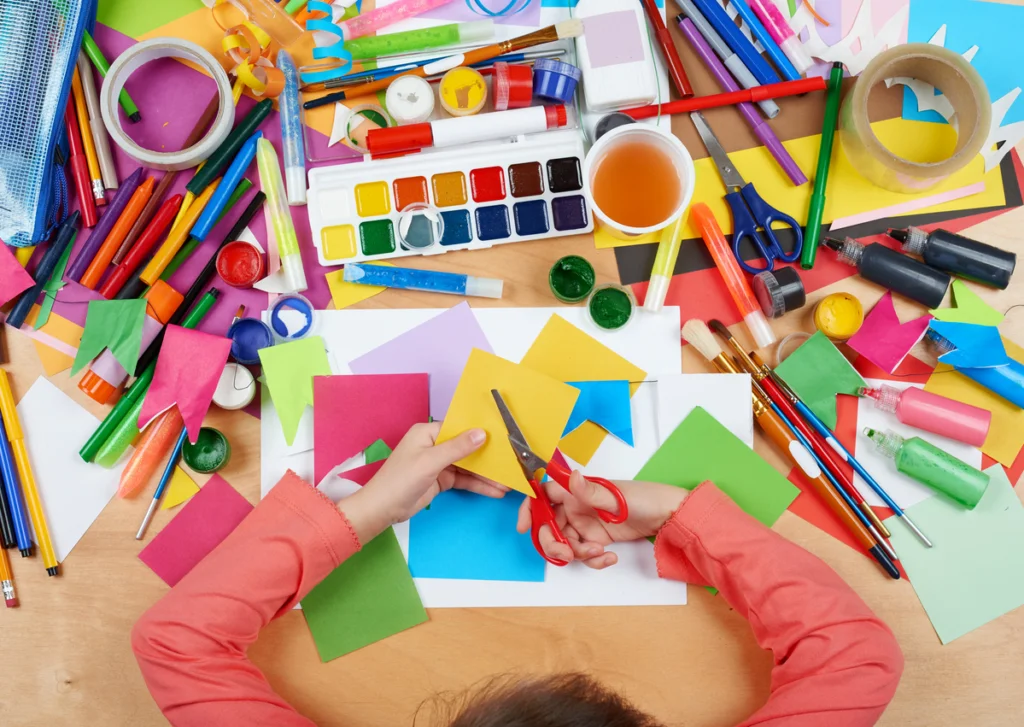
“I’m bored” was a declaration that led to the most incredible adventures—building elaborate blanket forts, creating entire civilizations in the sandbox, or spending hours perfecting the art of making the perfect paper airplane. Without instant entertainment at our fingertips, boredom became the launching pad for creativity, imagination, and the kind of deep, focused play that psychologists now say is crucial for child development. Those empty hours were actually full of possibility.
The magic happened in that moment when boredom transformed into inspiration—suddenly you were directing elaborate backyard theater productions, building complex Lego cities, or teaching yourself to juggle with tennis balls from the garage. We learned that entertainment didn’t have to be provided for us; we could create it ourselves with nothing more than imagination and whatever materials we could scrounge up. This self-reliance in entertainment taught us that we were the masters of our own fun, a lesson that served us well throughout life.
5. Phone Calls That Were Special Occasions
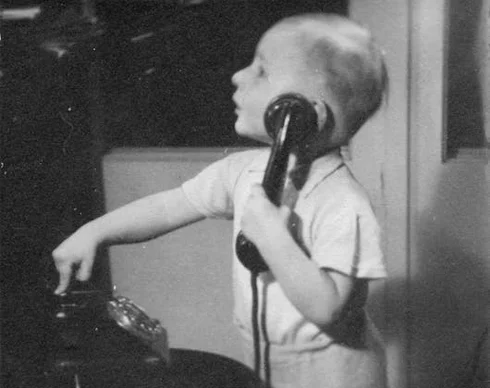
Making or receiving a phone call was an event that required planning, privacy negotiation, and often a deep breath before dialing. We’d rehearse what we wanted to say, carefully plan our approach for asking someone to the school dance, and sometimes hang up if the wrong person answered because we were too nervous to ask for who we really wanted to talk to. The anticipation and preparation made those conversations feel important and meaningful in ways that instant messaging never could.
The ritual of phone calls taught us communication skills that texting simply can’t replicate—how to read tone of voice, navigate awkward silences, and carry on extended conversations without visual cues. We learned phone etiquette, like how to properly take messages for family members and why you should never call during dinner time. These conversations required our full attention and presence, creating deeper connections than the scattered, partial attention we give to digital communications today.
6. Having to Wait for Your Favorite TV Shows
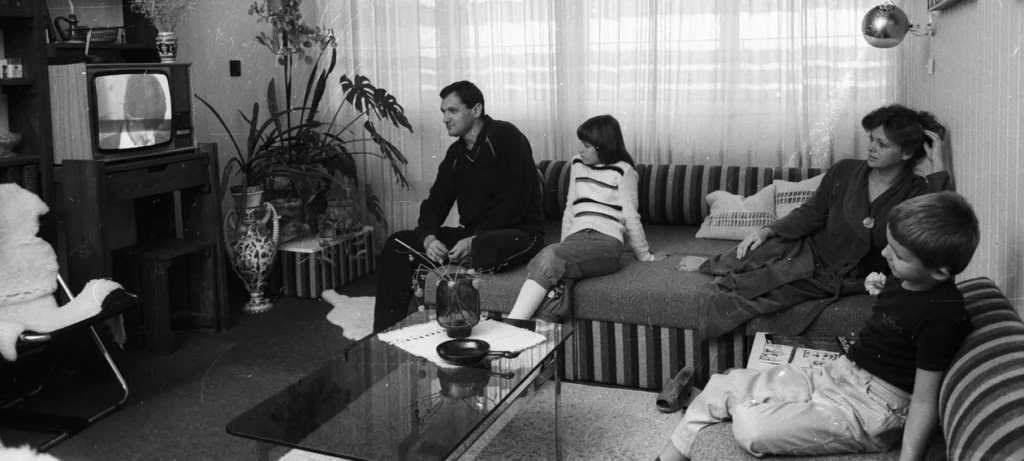
Thursday nights meant “The Cosby Show,” Saturday mornings were for cartoons, and if you missed an episode, you were genuinely out of luck until summer reruns. This scarcity made television feel special—we’d plan our weeks around our favorite shows, gather with family for appointment viewing, and discuss episodes with friends at school the next day because we’d all watched the same thing at the same time. The shared cultural experience of collective viewing created bonds and conversations that streaming can’t replicate.
The anticipation of waiting a whole week to see what happened next in your favorite series built excitement and gave us something to look forward to during otherwise mundane school weeks. We’d speculate with friends about plot developments, debate character motivations, and create our own theories about upcoming episodes. This delayed gratification made entertainment feel more valuable and memorable than today’s binge-watching culture, where entire seasons disappear in a weekend blur.
7. Surviving Minor Emergencies Without Parental Rescue

When your bike chain broke three miles from home, you figured out how to fix it with whatever tools you had, walked it to the nearest gas station, or convinced a sympathetic neighbor to help you out. Skinned knees got rinsed with garden hoses, minor disputes were settled without adult mediation, and running out of money meant creative problem-solving, not a quick text for a parental bailout. These small challenges built character and confidence in ways that constant parental accessibility never could.
Each successfully navigated crisis—whether it was getting caught in an unexpected rainstorm, dealing with a flat tire, or handling a playground conflict—added to our growing sense of competence and independence. We learned to assess situations, consider options, and take action without immediately seeking adult intervention. This self-reliance became a source of pride and confidence that carried over into other areas of our lives, teaching us that we were more capable than we might have initially believed.
8. Reading Maps and Asking for Directions
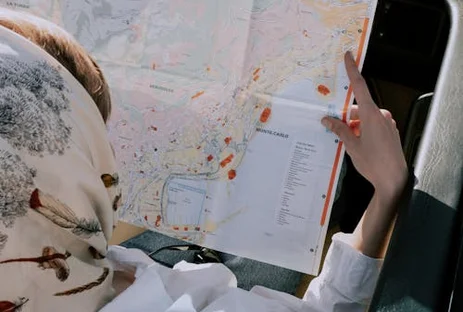
Road trips meant unfolding enormous paper maps that took up the entire dashboard, carefully tracing routes with your finger, and sometimes pulling over to ask gas station attendants for directions to the nearest rest stop. Kids in the backseat became junior navigators, responsible for watching for exit signs and street numbers while parents focused on driving. Getting lost was part of the adventure, not a technological failure that needed immediate correction.
These navigation challenges taught us spatial reasoning, geography, and the art of communicating with strangers in a polite, clear manner. We learned to read landmarks, estimate distances, and understand our position relative to major highways and geographical features. The skills we developed—from reading map legends to giving clear, helpful directions to others—created a kind of spatial intelligence that GPS technology has largely replaced but never quite replicated.
9. Having Unplanned, Spontaneous Adventures
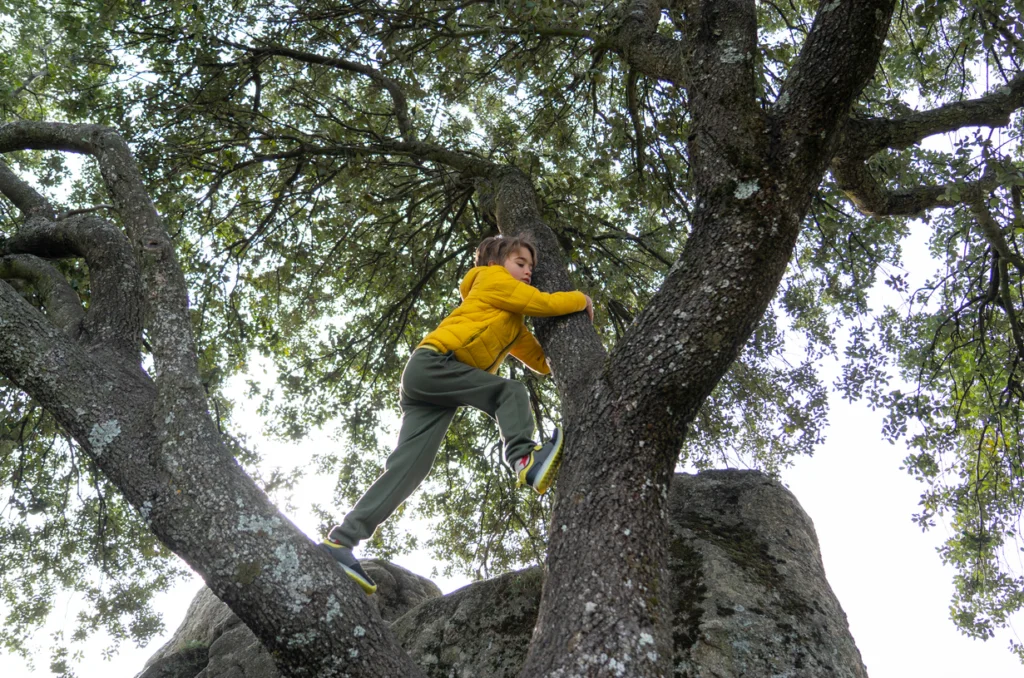
The best adventures started with someone saying, “Hey, want to go explore that old creek?” or “I heard there’s a really cool tree fort in the woods behind the school.” Without the ability to research, plan, or document these expeditions in advance, they retained an element of genuine surprise and discovery. We’d set off with no expectations, no predetermined outcomes, and no safety net beyond our own wits and the buddy system.
These spontaneous explorations taught us to be present in the moment, to notice our surroundings with keen attention, and to find wonder in unexpected places. Whether we discovered a hidden pond, stumbled upon wild blackberry bushes, or found the perfect spot for a secret clubhouse, these unplanned adventures created some of our most treasured childhood memories. The lack of documentation meant these experiences lived only in our memories, making them feel more personal and precious.
10. Playing Games That Couldn’t Be Paused
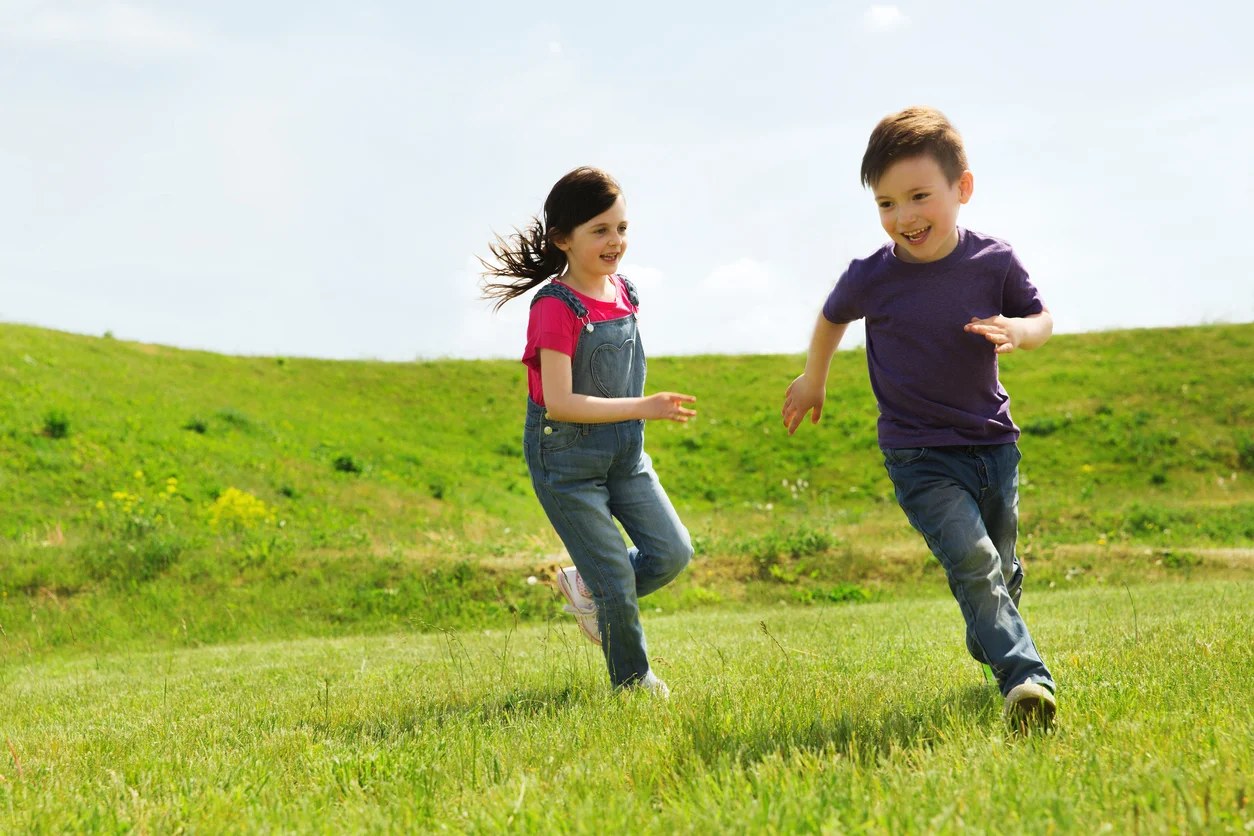
When neighborhood kids gathered for a game of hide-and-seek, kick the can, or capture the flag, everyone had to commit fully because there was no pause button, no way to save your progress, and no option to quit and restart if things weren’t going your way. These games required negotiation, compromise, and the ability to work through conflicts in real-time because abandoning the game meant disappointing everyone and potentially ending the fun for the entire group.
The social dynamics of these unpauseable games taught us valuable life skills—how to be a good sport when losing, how to include everyone regardless of skill level, and how to modify rules on the fly to keep things fair and fun. We learned that sometimes you had to play through frustration, that winning wasn’t everything, and that the relationships with other players were more important than the outcome of any individual game. These lessons in perseverance, fairness, and social cooperation served us well beyond the playground.
11. Having to Remember Everything Without Digital Reminders
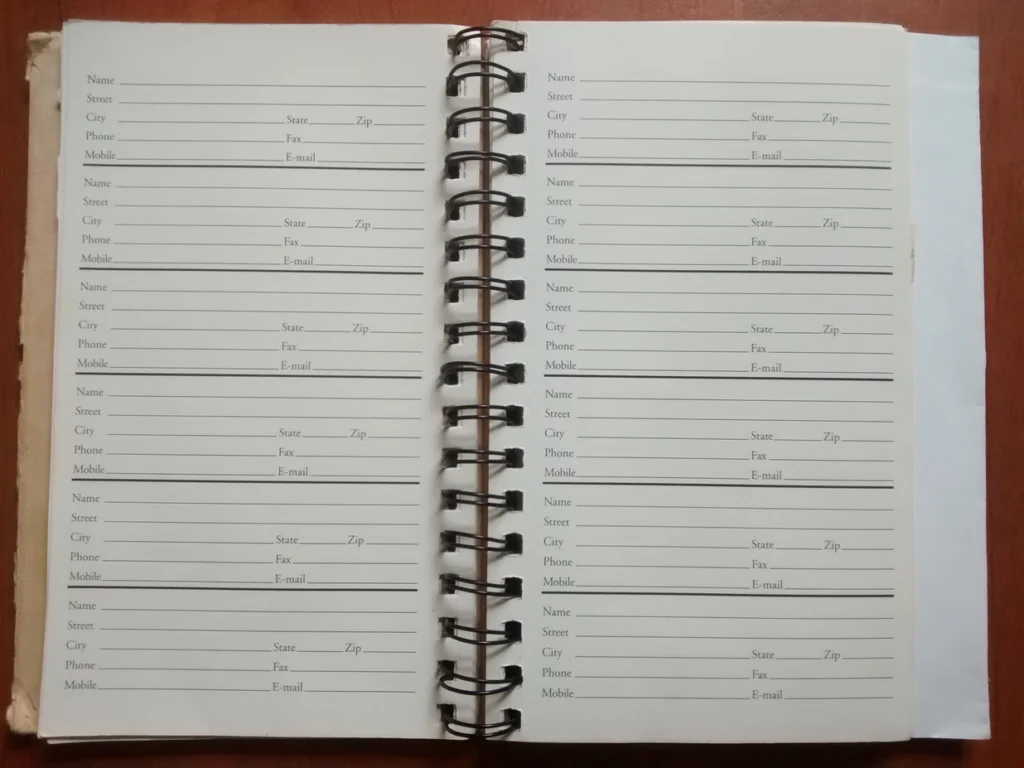
Phone numbers, addresses, birthdays, and important dates all lived in our heads because there was nowhere else to store them reliably. We memorized our friends’ phone numbers, knew our address by heart before kindergarten, and could recite family birthdays without consulting a calendar. This mental filing system made our brains work harder but also made information feel more valuable and personal because we’d invested effort in remembering it.
The act of memorization created stronger neural pathways and deeper connections to the information we deemed worth remembering. We developed tricks and systems for retaining important details, learned to associate faces with names more effectively, and built mental maps of our neighborhoods that were far more detailed than any GPS could provide. This cognitive exercise strengthened our memory muscles in ways that constant access to external storage simply can’t replicate.
12. Experiencing True Silence and Solitude
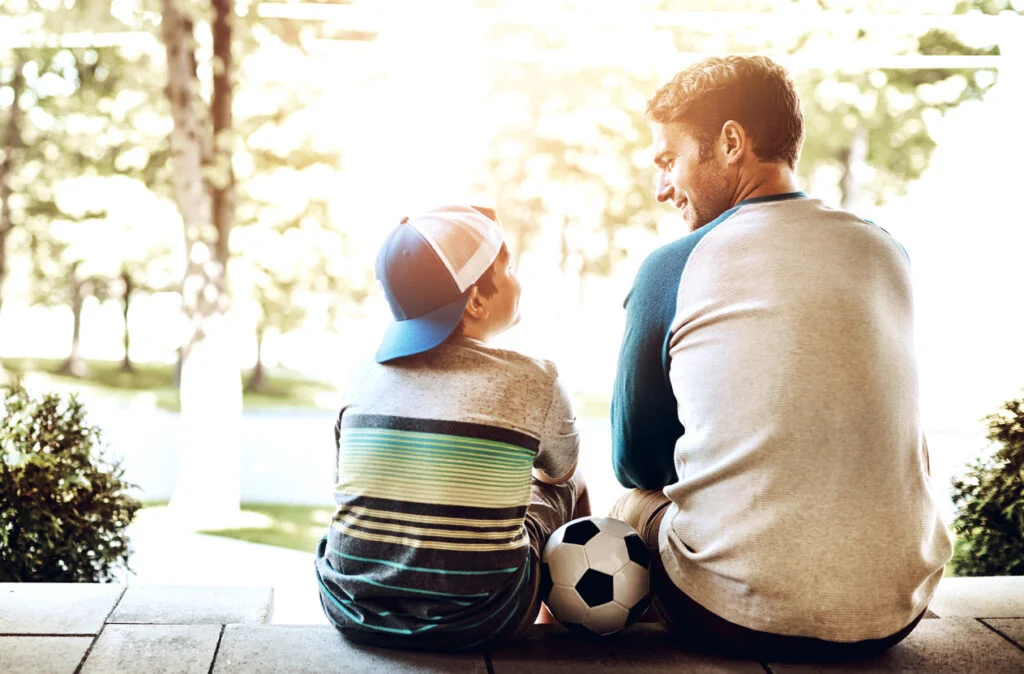
Before constant connectivity, there were moments of genuine quiet—walking alone through the woods, lying in your bedroom without any electronic hum, or sitting on the front porch just watching the world go by. These periods of silence weren’t awkward or uncomfortable; they were opportunities for reflection, imagination, and the kind of deep thinking that requires uninterrupted mental space. We learned to be comfortable with our own thoughts and to find entertainment in observing the world around us.
These quiet moments taught us to notice subtleties—the sound of wind through leaves, the pattern of shadows moving across the wall, or the complex social dynamics of ants on the sidewalk. We developed longer attention spans and the ability to sit with uncomfortable feelings without immediately seeking distraction. This comfort with solitude and silence created a kind of inner resilience and self-awareness that constant stimulation tends to erode.
13. Building Real Forts and Hideouts
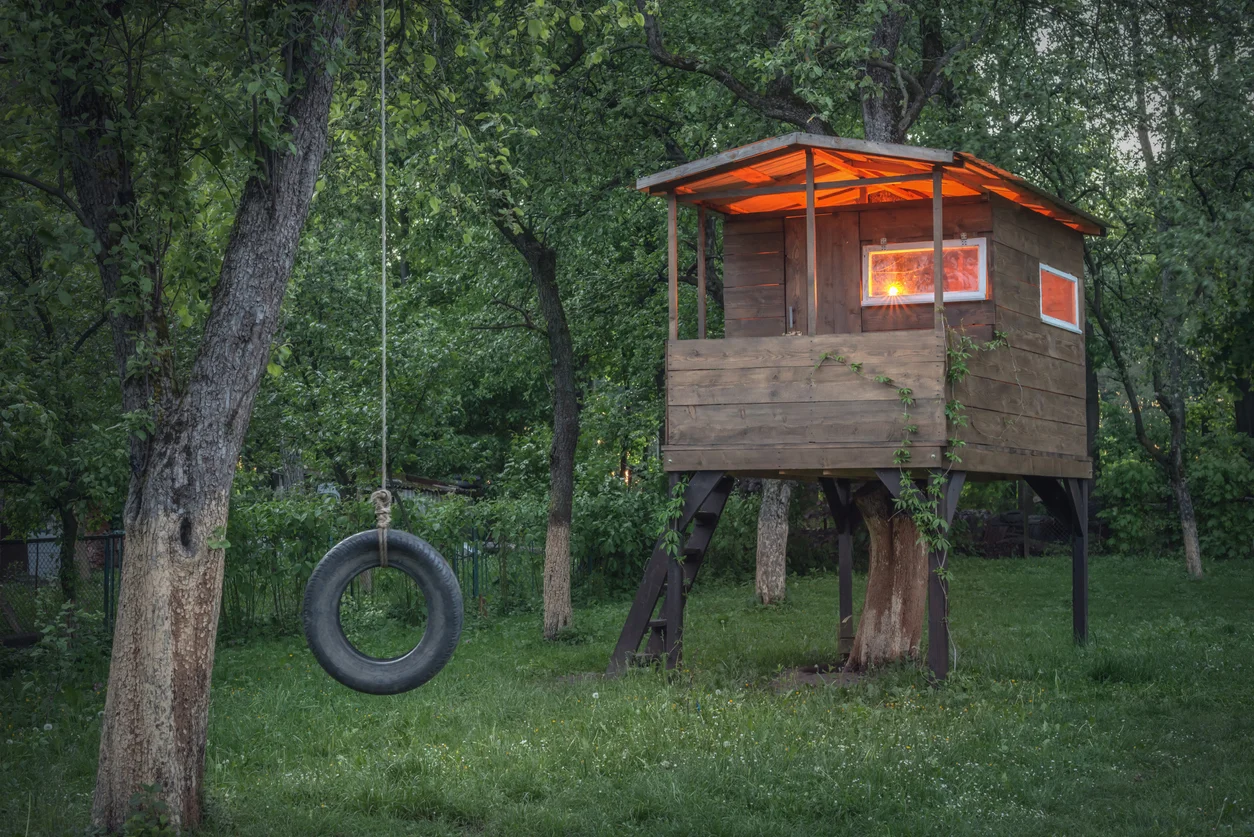
Armed with nothing more than old sheets, couch cushions, and whatever lumber scraps Dad would let us have, we constructed elaborate fortresses that served as secret headquarters, private retreats, and the setting for countless imaginary adventures. These physical creations required engineering skills, creative problem-solving, and the kind of hands-on learning that no video game could replicate. The pride of building something with your own hands—even if it was just a blanket draped over lawn chairs—was immense and lasting.
Our forts weren’t just play structures; they were sacred spaces where friendships were cemented, secrets were shared, and imaginations ran wild. We’d spend hours perfecting the construction, decorating the interior with flashlights and comic books, and defending our territory from younger siblings or neighborhood rivals. These physical hideaways gave us a sense of ownership and accomplishment that virtual worlds, no matter how sophisticated, simply cannot match.
Those were the days when childhood came with built-in training wheels for independence, creativity, and resilience—skills that served us well as we grew into adults who could navigate uncertainty, entertain ourselves, and find satisfaction in simple pleasures. We were the last generation to experience the particular magic of growing up disconnected yet deeply connected to our immediate world, our neighbors, and most importantly, ourselves. Maybe that’s why we turned out okay despite—or perhaps because of—all the “dangers” we survived that today’s parents work so hard to prevent.
This story 13 Childhood Privileges That Only Existed Before Cell Phones Took Over was first published on Takes Me Back.

